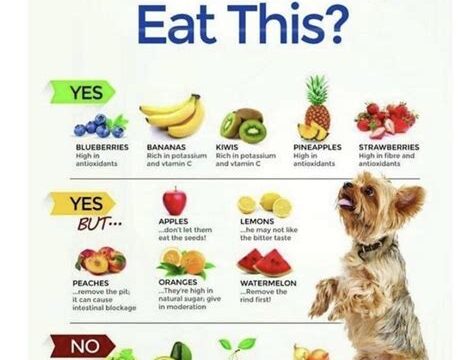Learn how to meet your dog’s nutritional needs, choose the right food, and understand the impact of proper nutrition on their health. Find out about common deficiencies and the role of protein, vitamins, and minerals, and get advice from a veterinarian.
Understanding your dog’s nutritional needs
When it comes to understanding your dog’s nutritional needs, it’s important to consider that every dog is different. Factors such as age, breed, size, and activity level all play a role in determining the specific requirements for your furry friend. It’s crucial to take into account the individual needs of your dog when selecting the right type of food and ensuring they are receiving the proper nutrients.
One of the key components in understanding your dog’s nutritional needs is the role of protein in their diet. Protein is essential for maintaining a healthy coat, muscles, and overall bodily functions. It’s important to choose a dog food that contains high-quality sources of protein to support your dog’s well-being.
In addition to protein, the importance of vitamins and minerals should not be overlooked. These essential nutrients play a critical role in maintaining your dog’s overall health and well-being. Ensuring that your dog’s diet includes a balance of vitamins and minerals is key to preventing nutritional deficiencies and promoting a long, healthy life.
Choosing the right type of dog food
When it comes to choosing the right type of dog food for your furry friend, there are a few important factors to consider. First and foremost, you’ll want to look for a dog food that is specifically formulated for your dog’s age, size, and breed. Puppies, adult dogs, and senior dogs all have different nutritional needs, so it’s important to choose a food that is appropriate for your dog’s life stage. Additionally, larger breeds may require a different type of food than smaller breeds, so be sure to take your dog’s specific needs into account.
Another important consideration when choosing the right type of dog food is your dog’s activity level. Dogs who are highly active, such as working dogs or those who participate in agility training, may require a higher calorie diet to meet their energy needs. On the other hand, more sedentary dogs may need a lower calorie diet to prevent weight gain. Look for a food that is specifically formulated for your dog’s activity level to ensure they are getting the right balance of nutrients.
Finally, you’ll want to consider any special dietary needs your dog may have. Some dogs may have food allergies or sensitivities that require them to eat a specialized diet. Additionally, dogs with certain health conditions, such as kidney disease or diabetes, may require a prescription diet to manage their condition. Consulting with your veterinarian can help you determine if your dog has any special dietary needs and what type of food will be best for them.
Impact of proper nutrition on overall health
Proper nutrition plays a crucial role in maintaining the overall health and well-being of your dog. Providing a balanced diet rich in essential nutrients such as protein, vitamins, and minerals is important for keeping your dog in optimal physical condition.
When your dog is consuming the right nutrients, it can help support their immune system, improve their coat and skin health, and promote strong bones and muscles. On the other hand, a lack of proper nutrition can lead to a range of health issues, including obesity, digestive problems, and a weakened immune system.
By understanding the impact of proper nutrition on your dog’s overall health, you can make informed choices about their diet and ensure they are getting the nutrients they need to thrive. Consulting with a veterinarian for nutrition advice can also be beneficial in ensuring your dog’s diet is meeting their specific needs.
Common nutritional deficiencies in dogs
The Importance of Proper Nutrition for Your Dog’s Health
Common Nutritional Deficiencies in Dogs
Dogs, like humans, require a balance of nutrients to maintain their health and well-being. However, there are certain common nutritional deficiencies that can impact a dog’s overall health. One of the most common deficiencies in dogs is lack of proper levels of essential fatty acids, such as omega-3 and omega-6. These fatty acids play a crucial role in maintaining a healthy coat, skin, and joint function in dogs.
Another common nutritional deficiency in dogs is lack of vitamin D. Without adequate levels of vitamin D, dogs can experience weakened bones and muscles, poor immune function, and an increased risk of developing certain diseases. Additionally, inadequate levels of vitamin E can also lead to health issues in dogs, including muscle and nerve dysfunction, as well as a weakened immune system.
It is important for dog owners to be aware of the signs of these common nutritional deficiencies, which may include dull coat, dry skin, joint pain, and overall lethargy. Consulting with a veterinarian can help identify and address these deficiencies, ensuring that your dog is receiving the proper nutrition for optimal health.
The role of protein in your dog’s diet
The Importance of Proper Nutrition for Your Dog’s Health
Protein is a fundamental component of your dog’s diet, playing a crucial role in their overall health and well-being. It is essential for the growth and repair of their body tissues, as well as for the production of enzymes, hormones, and other vital substances. Without adequate protein in their diet, dogs may experience stunted growth, poor muscle development, and a weakened immune system. Therefore, it is important to ensure that your dog receives the right amount of high-quality protein in their daily meals.
When choosing a dog food, it is important to look for options that contain a sufficient amount of protein from animal sources such as meat, poultry, fish, and eggs. These sources provide the essential amino acids that dogs need for optimal health. Plant-based proteins, on the other hand, are not as easily digestible for dogs and may not provide all the necessary amino acids. Additionally, protein content should make up a substantial portion of your dog’s diet, as it is a key macronutrient that supports their energy levels and muscle function.
Consulting with a veterinarian can help you determine the right amount and type of protein for your dog’s specific needs. Factors such as their age, size, activity level, and any health conditions they may have can all influence their protein requirements. By prioritizing the role of protein in your dog’s diet, you can help ensure that they maintain strong muscles, a healthy immune system, and overall well-being.
The importance of vitamins and minerals
When it comes to providing proper nutrition for your dog, it’s important to understand the role of vitamins and minerals in their diet. Vitamins and minerals are essential for maintaining your dog’s overall health and well-being. They play a crucial role in supporting your dog’s immune system, bone health, and energy levels. Without adequate vitamins and minerals, your dog may be at risk for developing various health issues and deficiencies.
It’s essential to ensure that your dog’s diet is balanced and includes a variety of vitamins and minerals. Some key vitamins for dogs include Vitamin A, Vitamin C, and Vitamin E, while important minerals include calcium, phosphorus, and potassium. These nutrients can be found in high-quality dog food, as well as supplements if recommended by a veterinarian.
Consulting with a veterinarian for nutrition advice is crucial to ensure that your dog is receiving the appropriate amount of vitamins and minerals in their diet. A veterinarian can provide personalized recommendations based on your dog’s specific needs, age, and breed. By prioritizing the importance of vitamins and minerals in your dog’s diet, you can help them live a long, healthy, and happy life.
Consulting with a veterinarian for nutrition advice
The Importance of Proper Nutrition for Your Dog’s Health
When it comes to ensuring that your dog receives the proper nutrition, consulting with a veterinarian can be incredibly beneficial. A veterinarian can provide expert advice on your dog’s specific dietary needs, taking into consideration factors such as age, breed, activity level, and any existing health conditions. They can also offer guidance on choosing the right type of dog food, including the importance of considering the ingredients and nutritional content.
Furthermore, a veterinarian can help identify any potential nutritional deficiencies in your dog’s diet, as well as recommend supplements or specialized diets if necessary. This personalized approach to nutrition can significantly impact your dog’s overall health and well-being, helping to prevent or manage conditions such as obesity, digestive issues, and joint problems.
Overall, consulting with a veterinarian for nutrition advice can provide you with the knowledge and resources to make informed decisions about your dog’s diet, ensuring that they receive the essential nutrients they need to thrive.
Frequently Asked Questions
Why is proper nutrition important for my dog?
Proper nutrition is essential for your dog’s overall health and well-being. It provides the necessary nutrients to support their immune system, maintain a healthy weight, and promote strong bones and muscles.
What are the signs of a well-nourished dog?
A well-nourished dog will have a shiny coat, bright eyes, and plenty of energy. They will also have solid, regular bowel movements and a healthy appetite.
How can I ensure my dog is getting the right nutrients?
You can ensure your dog is getting the right nutrients by feeding them a high-quality, balanced diet that is appropriate for their age, breed, and activity level. It’s also important to consult with a veterinarian for specific dietary recommendations.
What are some common nutritional deficiencies in dogs?
Common nutritional deficiencies in dogs can include lack of essential vitamins and minerals, such as calcium, vitamin D, and omega-3 fatty acids. These deficiencies can lead to issues like bone and joint problems, poor coat quality, and weakened immune system.
Can I feed my dog a homemade diet?
While homemade diets can be an option, it’s crucial to ensure they are properly balanced and meet your dog’s nutritional needs. Consulting with a veterinary nutritionist can help you create a homemade diet that is safe and healthy for your dog.
Are there any specific foods I should avoid feeding my dog?
Yes, some foods can be toxic to dogs, such as chocolate, grapes, onions, and certain artificial sweeteners. It’s important to familiarize yourself with a list of foods that are harmful to dogs and avoid feeding them to your pet.
How often should I review my dog’s diet with a veterinarian?
It’s a good idea to review your dog’s diet with a veterinarian at least once a year, or more frequently if they have specific health concerns or dietary needs. This will help ensure your dog is receiving the appropriate nutrition for their individual requirements.





